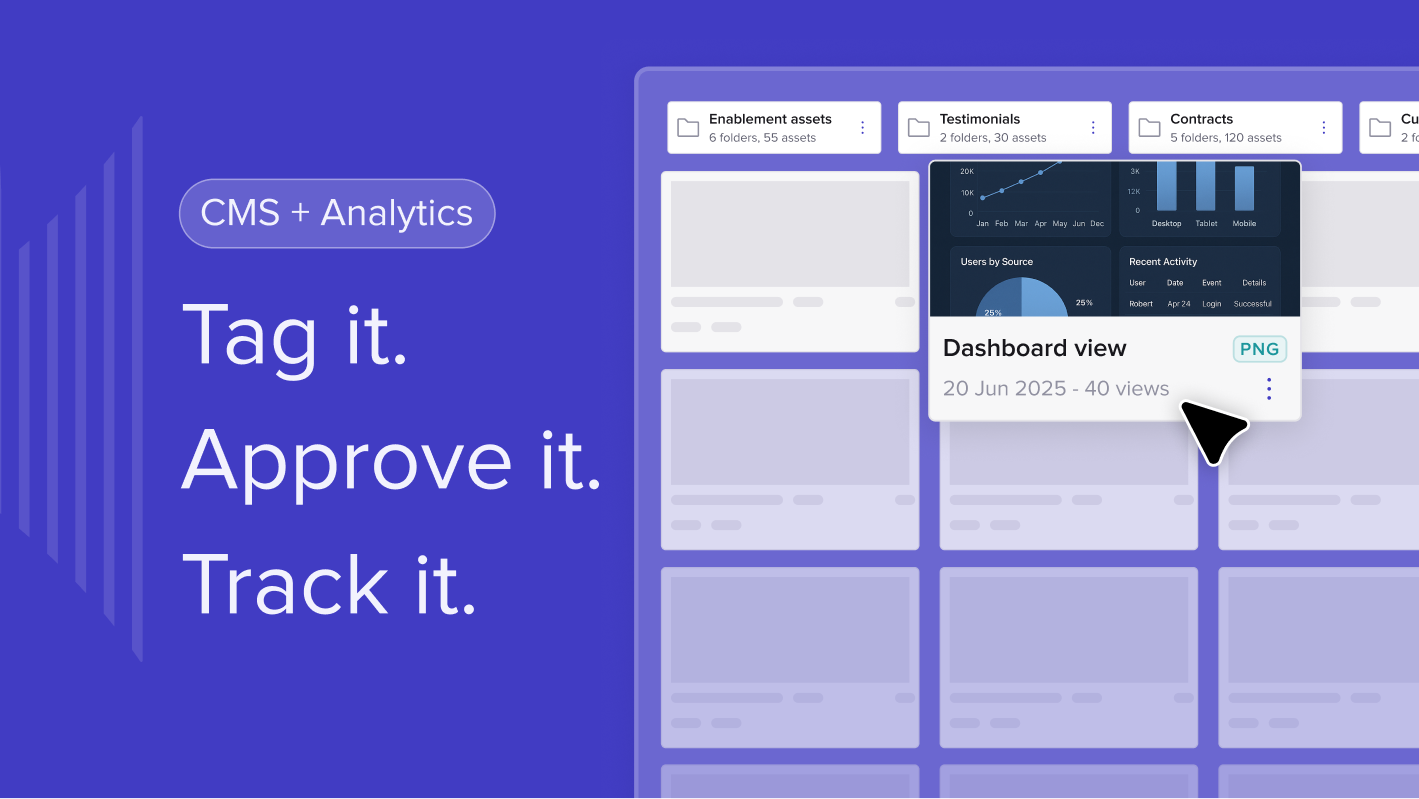In this episode of the GTM Insider we have Hannah Ajikawo, CEO and founder of Revenue Funnel on the mic!
We'll be discussing:
- How to effectively connect with key decision makers during the buyer journey
- When to approach them, what information to share, and how to simplify the decision-making process
- The importance of sellers teaming up with their champions to deliver impactful messaging, product knowledge, and value that resonates with those making the final call
Where to find Hannah:
trumpet in the wild:
Episode transcript:
Rory Sadler:
This is the first episode in our masterclass series, the GTM Insider, where we'll be connecting with industry leaders to get the low-down on all things sales, customer service, and marketing. So we can provide you with actionable tips to keep moving that needle forward!
Delighted to be connected with Hannah Ajikawo today, whom I've had the pleasure of connecting with on LinkedIn many times.
We finally met at an event recently, thanks to our friends over at Lavender. However, I don't like to do introductions on behalf of people, so I'm going to hand it over to you.
Take it away!
Intro to Hannah
Hannah Ajikawo:
I appreciate you having me on. I'm Hannah Ajikawo, the CEO and founder of a revenue consulting firm called Revenue Funnel.
It's very timely to have a conversation like this because I've been advocating for alignment across marketing, sales, and customer success. And then you introduce it like that, and it's just beautiful.
So, a very similar story to a lot of people. I've only ever done sales.
I had no plan to get into sales and have held every role you can think of, starting as a BDE (business development executive), and then all the way up to Chief Revenue Officer, which is a role I'm currently sitting in fractionally today.
As you know, I like to scream and shout about sales online. So that's probably how you connected with me in the first place, and I absolutely love what I do. Outside of that, of course, I'm a mom and also advocate heavily to create much more representation for women of colour in sales through my role at Sistas in Sales.
About Revenue Funnel
With regards to the Revenue Funnel, some of the things that I'm trying to help organisations address are how they can become more closely aligned with the way buyers need to buy from them and the way buying cycles typically work today.
A big part of that is just helping them to acknowledge what's happening and what decisions buyers need to make throughout their revenue journey. How can we help facilitate and support them in that journey?
Rory Sadler:
Awesome and kudos to you! Lots of plates being spun at once and yeah, I could say that before I built trumpet, I was following your journey as a sales rep and was always inspired by your content. So I'm very grateful that you've been sharing all your wisdom with the world, it's invaluable.
So we're going to jump straight into things. Now, our hot topic today is engaging stakeholders. It’s very difficult to engage stakeholders in the current market, with more stakeholders than ever involved in decision-making processes.
The average used to be around 6. It's now 7-11, and that number increases as you move up the funnel. We all know that if you're single-threaded, the chance of actually closing a deal is 5%, but 78% of reps are most often single-threaded.
So, I would love to hear your thoughts on engaging stakeholders beyond your champion.
Engaging stakeholders beyond your champion
Hannah Ajikawo:
It's interesting because some of the reasons why a lot of reps will focus on one person in an organisation is because we incentivise reps to generate opportunities, right?
And that opportunity usually starts with a meeting, so they've hit that KPI. Maybe the hard KPI is that opportunity. And when you're a junior rep, you kind of just hold on to that person who has the opportunity, they’ll just speak to them and take everything they say at face value.
There are a couple of things structurally in how we incentivise reps, which make it's quite difficult for them to think outside of who else they could be engaging with, questioning "is it my role to do that or is the person I'm speaking to supposed to do that?”
When it comes to how we start engaging decision makers, I think from the outset we should be thinking about the broadest picture of who's going to be involved in that and who will make up that decision-making unit. There are only 1 or 2 people who really make the decision, but there are a lot of people who have influence and they have different responsibilities in that whole decision-making cycle, and we have to quickly start mapping that out.
So we have to start by making some assumptions at the beginning to say, "Okay, this is our value proposition as an organisation, this is the problem that we're promising to solve, and we think that it's going to benefit this individual. We feel like the person above them is going to be the one that signs on the dotted line, and we feel like their downline is going to be the ones that have impacted these sorts of users on the ground”, right?
So I need to make sure that I have that 360° view around all of the people who could, in some way, impact that. Then, I'm going to try to make some connections (all of this before I even contact them).
We've got some great tools, such as LinkedIn Sales, now where you can do all the relationship mapping. You want to do a lot of preparation to try and get your own assumptions around who you 'think' might be involved in that decision-making process, and then begin your plan on how you’re going to start to engage them. You might have loads of names and think multi-threaded, but you’ll execute single-threaded. You just have lots of single threads of conversations flowing about, but there's no connection.
Rory Sadler:
Yeah, absolutely. I think that once they're on the call, you're still speaking to that main person, the champion, and trying to get everyone else engaged on the call is super difficult. So it's one thing getting them on the call, but actually maintaining engagement throughout is another.
When you take this multithreaded approach and start doing some stakeholder mapping, how early on in the sales cycle do you do that?
Does that start from the discovery call, or do you start to introduce that later on?
When to start stakeholder mapping
Hannah Ajikawo:
In the beginning, I always look at a big selection of contacts.
I always encourage teams to map out who we think will be involved. I love the concept of "above the line" and "below the line" that has been nicely encapsulated in books now. But before, I used to wonder who makes decisions and who is impacted by them You want to do that early on.
After that, we just poke a little bit. We send a message or a connection request to see who responds. We effectively want to see who's active and who will be the first person to actually give me something.
From there, I want to start discussing the assumptions I'm making about who could be involved in thinking through, exploring, testing, and evaluating it.
The language used will depend on how you operate your sales motion. Then, we can help validate or invalidate if those people would be part of it or not. But that planning and mapping should start from day one, definitely from day one.
Rory Sadler:
I think it's fair to say that when your champion gets excited about the product, there's the assumption that they're going to be the one to carry you through from that point all the way to the very end, doing all the heavy lifting for you.
So, how do you go about educating them on the journey ahead?
There's this concept we see a lot where champions aren't necessarily champions. They often turn into messengers, so they have their day job and they're busy doing a lot of back and forth for you to help this deal go forward. Obviously, it's for them as well because you know you're solving a problem specifically for them.
How do you go about alleviating that pressure and coaching them on what can be a pretty messy, lengthy, complex, high-risk journey?
Coaching and educating champions
Hannah Ajikawo:
It's not leaning on them to say… “Okay, so what do you need to happen next?” It's helping them understand what is going to happen next, and I think, as we know, buyers spend most of their time learning without us.
We're just not in the room. We get a really small proportion of time with them. I think the stats, around 17% give or take based on Gartner's research, but essentially that 17% translates down into about 5% because they're looking at 4 or 5 vendors.
So, with that in mind, we want to help educate the champion that we're initially speaking with and explain the following: "These are the upcoming developments. These are the factors you need to consider, and these are the individuals who typically help validate and make decisions in this process."
You won't have to handle this alone. We want them to understand and appreciate that, especially since you have ample experience in similar situations with other companies. It's highly likely that you're making accurate assumptions based on that experience.
However, it's important to test these assumptions with the champion by asking, "This is typically how things unfold. How have you seen this happen in your organisation?"
I think it's really key to help champions establish the role that they're going to play and you co-create and support them in the role that they need to do.
Many sales reps have had the experience where the champion says, "Oh, I'm not your decision maker. I'm just here to gather the facts and stuff."
But it's like, okay, let me tell you the facts that your boss is going to care about. It's going to be these 4 or 5 things. And then from there, ask what information they've been asked to gather, because you could send them 5 brochures, but I guarantee the decision makers don't want that.
What are the answers that those people need to the questions they have?
We want them to go back to their boss and be a superhero. So instead of sharing a 1-hour demo recording (that no one will ever watch), share a top-line summary. AI is great for that now, summarising our calls, but we really need to figure out how much they know. What's being asked of them, and we just have to coach them through it.
Rory Sadler:
And what happens if they become a bit of a blocker?
We've all seen it before when someone is asked to investigate a new solution, and you provide it, but they have been explicitly instructed not to involve other stakeholders yet. So, you will have to handle all the validation, exploration, and research.
But, if they are not allowing you to go beyond them, how can you effectively engage the other stakeholders?
Engaging with stakeholders beyond champions
Hannah Ajikawo:
This is the thing sometimes you just don't.
I've closed six-figure deals by leveraging only the champion. But, we developed such a great relationship that started with them thinking, "I don't even like you, but I think I might need you." Then it progressed to, "I kind of like you and I definitely need you now." Finally, we reached a point where they said, "Okay, I really trust you. Just help me out Hannah.”
You want that level of relationship. If you're not getting that relationship and you're not getting access, I'd think about the quality of that opportunity, full stop.
Or, if they say that they're just collecting information, give them the information. I think sometimes we get so obsessed with gaining access, but maybe it genuinely is just them doing research, and that's why I talk so much about discovery and breaking it down into research and review and really understanding, "Hey, where are you at? Where are you in understanding this internally?"
If they say that the timing was perfect and they’re currently interested in exploring what you do, great. You can respond by asking, “tell me a bit more about what caught your attention. What's happening in the organisation that makes you think this could be for you? Who else is involved in this exploration?"
If the answer is just them at the moment, they're only in the research phase, and there's no way that these guys are in a position where they have actually built consensus internally that says, "we're ready to really explore the solution, I've talked to the teams and I'll be your main point of contact”
I think that because we've been trained, if you don't have all those decision-makers on board, it's not a deal. If they’re just gathering information, we have to find ways to accept that and just manage those interactions, because you will anger a decision-maker if you go over someone's head when they have explicitly said, "We're just researching." Don't do that.
Rory Sadler:
Absolutely. We heard a great saying the other day: "Is it a project or is it a conversation?" And if it's the former, there's something there. Now you can put it in your CRM and move it forward.
Just to summarise, it sounds like if you're single-threaded and they're in the research phase, it's not an opportunity despite how exciting and cool they think the tool is. It's not an opportunity from your perspective?
Dealing with champions in the research phase
Hannah Ajikawo:
If there's no evidence that they've built internal consensus and you're asking them questions that are really trying to get into the meat of what this means to their organisation - We're talking impacts, We're talking about the cost of taking action, the cost of not taking action. All those standard questions. If they can't really answer them and are like "We're just really at this stage of trying to figure it out, I don't understand but it sounds interesting, but I'm just trying to figure out what it is," then we can just help educate them.
So, this is what people typically do in a deal. You have all these different systems. You'll be sending emails back and forth, and things get lost. What happens there is that you actually become disconnected from the engagement.
We have to really collaborate with them to say "the only way your boss is going to look at this or the only way your business is going to even consider this is if you do these three things right? So I'm going to do this one thing, you do those three things. Let's connect on Tuesday next week, and we're just going to talk about what you found.”
Now. We're going to get some more meat, now you start to see this project surface because it was so compelling, but we have to do that legwork.
Rory Sadler:
Absolutely, do you think reps need to be more direct with questions?
I feel that there's a real softness in how we treat every call and conversation, as if it were a precious piece of china - we don't want to disturb it, we don't want to miss out on the potential opportunity.
Do you think that while building relationships, we just need to be more direct?
Reps being more direct with questions
Hannah Ajikawo:
100%, that was probably my differentiator really early. I was really bad at trying to build rapport with people in the beginning because I had so many of my own personal challenges around "am I accepted?" I was coming out and trying to identify and work out who am I and who's Hannah? So I was going for all of that while trying to be a salesperson right?
So all I used to do was get really curious. I was just really intrigued by how does all this work? Who is this person in this role and what are they doing? So I would ask very direct questions like "Why would you do that?" and "How did your team spend that much time doing that? How did that come about? How would you even achieve that if you don't have this?" I was generally like, "I don't get it!”
So, asking those direct questions made them think “I dont get it either, what have we been doing?”
But the other thing is doing enough prep where you come into a discussion and say, "If I reached out to Mark, would he know what this whole thing is about? Because I was just checking out some stuff and I saw a couple of people in the team, and they'll be like, 'Oh no, that person is on the other side of the business. Who you need to speak to is James.'" Then they can tell that you've done some work, and that's the beauty of being able to earn the right to ask those questions.
But if you just go in and say "tell me what's keeping you up at night"... tumbleweed.
Rory Sadler:
That genuine curiosity really resonates, and that's what real discovery is about. You know you've done your research; you're genuinely curious about how you're going to help them.
I think that's also how you go beyond the stakeholder: understanding the pain for the person in front of you, but also understanding the jobs to be done with their manager, their CRO, and the business.
You've got to have done some of that research as well. You need to understand what they do, where they're at as a business, and if they're growing or entering new markets.
It sounds like it's important to use leading questions that show you've done your research. This will help you build trust and also help you understand how you're going to engage with the other stakeholders involved.
Trust is super important to win deals today
Hannah Ajikawo:
Yeah, I wanted to double-tap on that trust piece because it's just so important now. Trust will win you deals where you are the most expensive, you've created the most tension, or even constructive tension where you may have had difficult conversations with your prospect, but they're like "I want you because you pushed me to make the best choice.”
Trust today is really different because we're not always in front of people, and we also know that when people reach out to us, they're also sending 10 emails out to vendors at the same time.
While we might create these unique value propositions, they will tell you which bucket you fall into and what type of company you are.
So you have to think about trust in two different ways. Trust when you're in the room and trust when you're not in the room. Trust when you're in the room is you showing up with authority, very quickly, to make that person feel like this is going to be a good use of their time.
I always tell reps that they need to do something in the first five minutes that is not just about the weather. It's about your demeanour, how you carry yourself, how you talk about things, what you've been doing, and how you introduce yourself that makes someone think, "Okay, this is good. I didn't think we would get here already." You have the power to influence that.
However, when you're not in the room, which is most of the time, with 80% of the decision-making unit, the first thing they're going to do is hang up the call. They're going to cc their team, but that does not equal buy-in from the team. As a leader, I'm saying "I like it," but it doesn't mean my team will. Right?
So, what happens when you're not in the room is that the only way they're going to learn about you is without you. They're going to go on LinkedIn and search Google, and they're going to think, "Okay, so this person hasn't posted in seven months, and their LinkedIn says they have four active job roles, so I don't know where they work...”
They need to get to know you so that they can trust that you are who you say you are. Particularly when there are all these bot profiles online. They need to know that you care about the thing that you're so desperately trying to get them to buy. This value proposition that you want them to buy into, if they can't see that you care about it... Why should they?
I always go back to the days when I would be in the room with a really big company and their sales leaders, their other commercial leaders, and their sales team would stop me and say, "I can feel how passionate you are about this, you really care." I'm like, "Yeah, because now that I know how you work, and I'm here with you, this is going to be so significant for you.”
But that's the power in the room, but outside of the room, people need to know, "Who are you online?" "What's that digital footprint you've left?" and "How are you then going to enable your champion to evangelise you and your value proposition on your behalf?" That's going to be the other part of trust. So we really have to think about being in the room and not in the room.
Rory Sadler:
Yeah, so it's a really interesting way to phrase the concept of a trusted advisor. You can know your product inside out, but you've also got to know the industry, the space, their problem, what they do, and how the two fit. I really like the way you phrase that.
I'm going to wrap up here, but one last question I wanted to ask.
Once you have built that trust and are starting to get in front of the other decision makers, the rise of the business case is everywhere. This is because of the current climate, where every CRO, CFO, or CEO is involved in every budget sign-off, whether it's $5k or $100k, and whether it's an SMB deal or an enterprise deal.
We are finding that the champion often has to put together a business case. Do you see reps proactively creating them? Would you recommend it? Also, how do you go about creating a business case when there are different levels of seniority involved?
How to create a business case
Hannah Ajikawo:
The whole business not the rep needs to own the structure of a business case.
That should be a template where you know that your rep's will be covering the typical part of that at a high level.
We need to make sure that there's some kind of summary 2 sentences that are juicy and impactful. So throw it in chat GPT and keep iterating, make it sick until you feel like it sounds a bit me you, So we want to make sure that you've just got something that really captures the story.
The key thing for you in building a business case is when you're speaking to your champion and they're telling you “we just want to make it go faster we go faster” say “champion I get it and it's great for you. But I promise you there's a bigger story at your organisation.”
I always talk about critical priorities. I make sure all of my teams understand 'what is a critical priority for a company'. We're going to help the champion connect the dots if it's not really top of mind. Maybe they're an inexperienced buyer or maybe they're quite new in their role themselves and not that commercially astute.
So we may say, "hey, these are the themes that we're seeing, industry-wise and in your kind of space. When I was doing some research, I noticed that you guys did this, this, and this, which usually makes me think that your business is heavily focused on international expansion." So, how are you going to tie your business case to that? How is this going to help them with that international expansion?
We want to make sure that as soon as the executives read it, it aligns completely with their 2, 3, 5-year plan.
We also want to talk about why now is going to be the best time to do it, or actually, it may not be right now. It may actually be in Q1. If you have to set up an opportunity for Q1, go do that! It's okay, and then build up to it.
The business case must speak to the needs of the decision makers is it has to talk to the needs of those other people.
The best way to do it without speaking to them directly is to go to the top, the main business objective. What's the main crux that they're going after and how does that tie into it? Because now you're going to have other decision makers falling in line.
If we're not getting the access that we need with those people, we need to show a compelling business case that looks good and speaks their language. For them to turn around and think, "this is pretty good, I can see that you guys have really done the work there.”
Rory Sadler:
Hannah, we could talk about this all day long, and there are so many awesome takeaways for every listener. I'm super grateful to have you on the show.
I'm going to wrap it up there, but I do want to finish up with one last question.
To wrap up the show, we always like to ask our guests about a sales mistake they've made and what they've learned from it.
Biggest sales mistake you've made
Hannah Ajikawo:
There are loads.
So one that burned me a lot - My target at the time was about 450k. I had 2 deals that were going to contribute about 50%. One was on the finish line and I had the yes from the top person, like the CRO and board member. All of the directors were like "we can't wait, Hannah is really great.”
So I left it with my boss went on holiday, living life on my luxury trip to Dubai love it! Got back and he was like “I’ve got some bad news”… We just waiting for contracts to be signed but he told me “it just it didn't close” and I was like “which one?” he said “both of them!” and I thinking, What did I do, what happened!
One of them did close the month after but these are chunky deals, our average contract value was 6k my deal was 100k - that just doesn't happen right.
What happened was that everybody was on board, budget was great, fine, no problem, no brainer for them, great ROI. But there was somebody else in the organisation trying to solve the same problem. They got wind of it when it was going through sign off and said, "Who are these guys?" and said, "I'm doing something and it's literally 70% cheaper than them." I was explaining that there's a reason why it's 70% cheaper! But the price difference was so significant. However, because I hadn't addressed all of those objections up front, then I was on the backfoot.
It was just that one question “who else in the organisation could be passionate enough or exploratory enough to go and try and figure this problem out themselves”.
Rory Sadler:
Ouch, an expensive mistake, but I'm sure it sounds like an invaluable one.
Awesome Hannah. Thank you again.

.svg)
.svg)
.svg)
.svg)
.svg)
.svg)
.svg)
.svg)
.svg)
.png)
.svg)
.svg)
.svg)
.svg)

.svg)
.svg)
%201.svg)
.svg)
%201.svg)



.svg)






.png)














![How to Get Started with Buyer Enablement [With Examples]](https://cdn.prod.website-files.com/65cf4fecbed2754c2236665d/65cf4fecbed2754c22366bdb_65a5af83e742f76e34ce06f3_Customer%2520Onboarding%2520_%2520Everything%2520you%2520need%2520(2).png)
.png)



.png)



.png)









.png)


.png)

.png)







